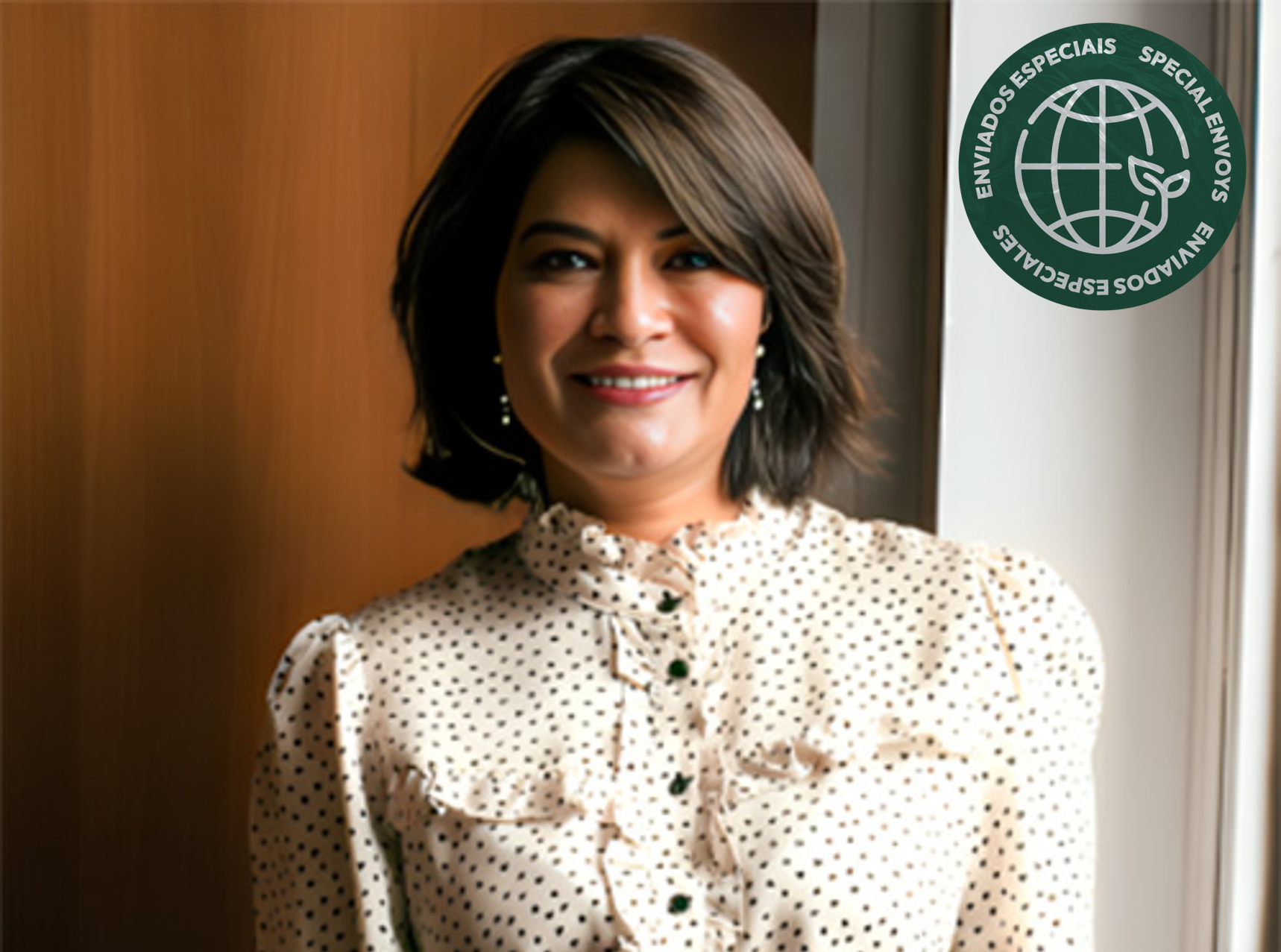“Energy transition must be understood as good business,” says Elbia Gannoum, Special Envoy for Energy
COP30 is expected to cement the understanding that investing in clean energy is key to sustainable economic development

By Rafaela Ferreira/COP30
The global shift toward cleaner, renewable energy sources—while ensuring universal and affordable access—is at the heart of discussions at COP30. The so-called just energy transition seeks to balance sustainability, social inclusion, and economic development.
In this episode of the Special Envoys Series, Elbia Gannoum, Special Envoy for Energy and Executive President of the Brazilian Wind Energy and New Technologies Association (ABEEólica), emphasizes that achieving a just transition warrants a fundamental change in how markets perceive and value energy investments—integrating this shift as part of a new global economic model.
The global energy transition poses the dual challenge of fostering economic and social development while cutting carbon emissions and expanding the role of clean, renewable sources. For Gannoum, one of the biggest obstacles to progress is how the global economy still measures value. “If we don’t change our mindset—still focused solely on short-term returns—if we fail to account for the climatic damage and financial losses that undermine profitability from an investor’s perspective, we will remain trapped in this cycle.”
“I often say: the energy transition must be understood as business—as good business,” Gannoum continues. “What is still missing for much of the world, including many investors, is the understanding that it can indeed be profitable. We need to flip this economic switch. It truly is a shift in the entire economic model.”
Gannoum explains that, at its core, the global energy transition is about transforming the economic foundations of society. “Since Paris, there has been much discussion about the vast differences among countries—economic, political, social, geographical, and in terms of available resources for making this transition. And as we shift from one mode of production to another, we cannot abandon economic and social development.”
“The concept of just means leaving no one behind,” she adds. “We cannot pursue this transition at the expense of society, jobs, or people’s livelihoods. We must move forward while ensuring that the economy and society advance together.”
Brazil’s Clean Energy Mix
Today, Brazil stands among the countries with the cleanest energy mixes in the world. According to the 2025 National Energy Balance (Balanço Energético Nacional), published by the Ministry of Mines and Energy (MME) and the Energy Research Company (EPE), wind and solar power accounted for 23.7% of the country’s total electricity generation in 2024—nearly one-quarter of Brazil’s energy drawn directly from nature: clean, renewable, and increasingly central to daily life.
The report also shows that the expansion of wind generation (+12.4%), solar (+39.6%), and natural gas (+23.9%) led to a 1% decline in the share of hydropower in Brazil’s energy mix. In total, the country’s domestic electricity supply reached 762.9 terawatt-hours (TWh) in 2024, a 5.5% increase over 2023.
For Gannoum, Brazil is primed to drive a just energy transition. “What we need now is to make this more visible to the world—to show that we are already in transition and how we can contribute to the global economy in this process,” she says.
Looking ahead to COP30, she highlights the importance of demonstrating both Brazil’s potential and its strategic use of available resources. “We know COP is not about Brazil—it is about the world confronting the challenge of the energy transition. And that challenge is immense, not only because it is difficult to scale up renewable sources, but also because it requires rethinking entire production models. That is a given. But in my view, the biggest barrier today is the lack of genuine political willingness to make this transition happen,” she says.
COP30: The Conference of Implementation
Gannoum underscores that there is broad consensus around the idea that COP30 must be the Conference of Implementation—a moment to turn discussions and commitments from past summits into tangible results. “COP30 is the COP of implementation. It is time to put into practice everything that has been debated and agreed upon over the past years. We understand that the major accords have already been reached and, to a large extent, are consolidated. Therefore, COP30 will not be a space for new agreements, but rather a conference dedicated to defining how to implement the decisions already made,” she explains.
As Special Envoy, Gannoum sees her role as building bridges between society, the productive sector, and government—connecting those who produce knowledge with those who make decisions. “At this stage of the COP process—not only because it is happening in Brazil but because it marks a new phase in global discussions—it is crucial to strengthen the link between decision-making power and society itself. Our role as envoys is precisely that: to carry information, ideas, and proposals back and forth, helping to shape shared solutions,” she says.
Translation: Tadeu Azevedo (POET/UFC)
Proofreading: Michel Emmanuel Félix François (POET/UFC)

